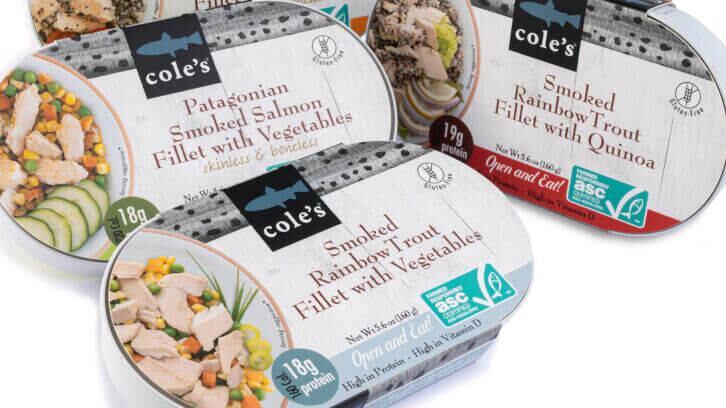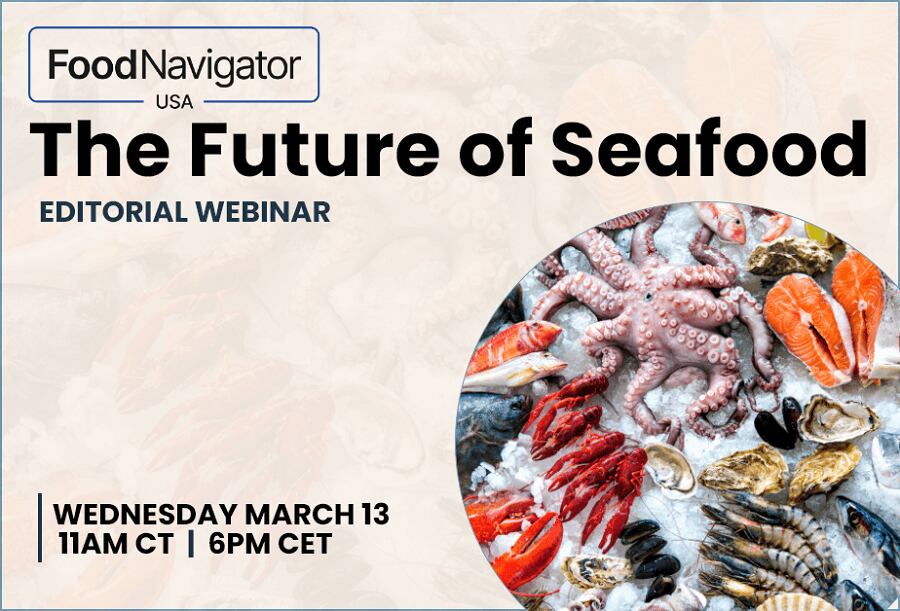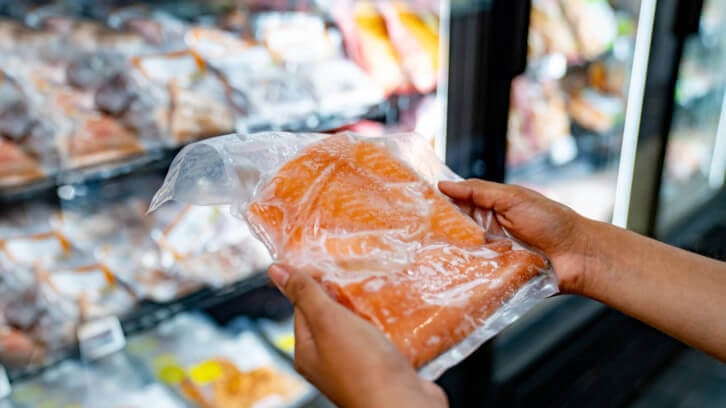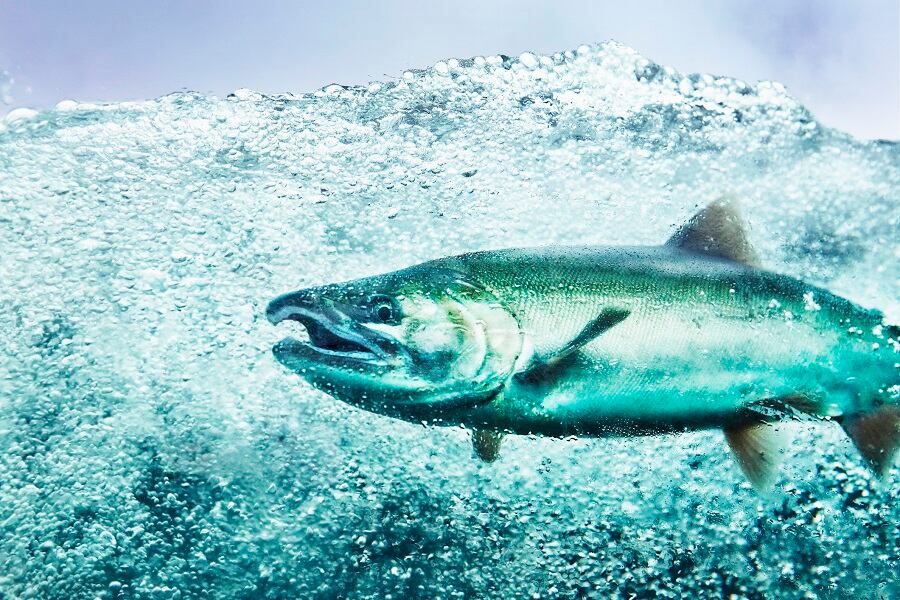Rather than persue multipe certifications, Cole's Seafood focuses only on the Aquaculture Stewardship Council (ASC) due to its broader market recognition.
Cole's offers various tinned and jarred seafood, including species that are certified by MSC and ASC for sustainable practices, and species sourced from smaller communities that work with local authorities on sustainable sourcing, even if they have not met the criteria or secured funding for full ASC/MSC certification. Its wild mackerel in olive oil, for example, is harvested in the Northern Atlantic using a sustainable hook-and-line fishing method, while its smoked salmon in olive oil bears the teal and white ASC logo.
“As a company, we’re very keen on focusing on where we can [achieve] the highest level of sustainability. It’s not always possible in some products given the way we source them or what we have access to at a certain time or the certifications that our suppliers are going through, but we’ve seen over time [an] increased demand in where we sell our products to,” explained Hrabar.
He continued, “ASC is working on a process to be more widely accepted with potential customers and actual customers we have in the US, and we hope that work will help us achieve more distribution for our products in the future.”
ASC and its sister organization, the Marine Stewardship Council (MSC), which focuses on wild-caught seafood, are gaining traction in the US through a multi-tiered effort to establish awareness among producers, distributors, retailers, and consumers. This includes ASC actively building its certification program directly with these stakeholders to standardize sustainable seafood practices across the supply chain where it's possible. However, retailers are still more inclined to establish their own sustainability standards, according to Hrabar.
Depending on region, 'certification is not always possible'
Hrabar noted that for some of Cole’s wild-caught seafood products sourced from Chile, MSC certification is not always possible, “because we are buying from small fishing communities, and in this case we are only buying from managed areas.”
In these cases, Cole’s works with Chile’s local authorities, which provide information on water quality and the availability of certain species throughout the year, which “provides some confidence that at least there’s some scientific approach behind the management of this particular area where we’re purchasing from.”
Cole's prioritizes premium, responsibly sourced seafood
Hrabar highlighted the challenges of navigating a rapidly evolving certification landscape. Initially, certifications were seen as a way to gain a competitive advantage; however, the constant addition of new requirements creates a significant paperwork burden.
Communicating the value of certifications to cost-conscious buyers is another hurdle, as stringent certifications can limit product availability and raise prices, which may not appeal to all customers.
Instead, Cole’s is focused on providing premium products where its consumers are more likely "to pay a little extra to get something that’s traceable and sustainable,” explained Jessica Dennett, Cole's Seafood director of operations.
“We all want to have known traceability and with that comes additional costs that we have … to cover, and we do that by focusing on premium products. We have tuna in jars, for example, but we don’t do canned tuna, which is probably 80-90% … of canned seafood. And those consumers are, in general, willing, for a certified product, to pay a little bit more so they have confidence that there is a process in mind," Hrabar added.
Bringing value-added SKUs from best selling items
With salmon and rainbow trout as the brand's most popular items, the company introduced its ASC-certified ready-to-eat (RTE) Smoked Rainbow Trout and Patagonian Smoked Salmon with either vegetables or quinoa. Each can contains 18g of protein with an ASC and gluten-free label on front of pack.
Dennett and Hrabar both emphasized the positive feedback from buyers and consumers, adding that the introduction of the RTE products has helped the brand "branch out into different sections," from the deli or RTE sections to camping and outdoor sports stores.
The company also plans to expand its RTE products to include salmon with lemon and dill and mussels with lemon and garlic, both ASC-certified, which Dennett noted will help consumers familiarize themselves with ASC labels




